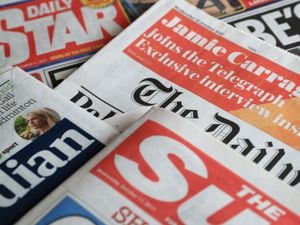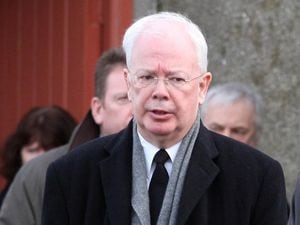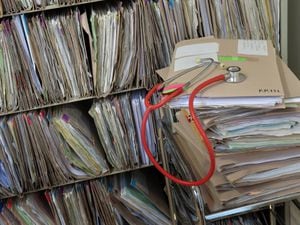UK braced for Russian response after diplomatic expulsions
Tensions between the West and Moscow are high after the nerve agent attack on Sergei and Yulia Skripal.
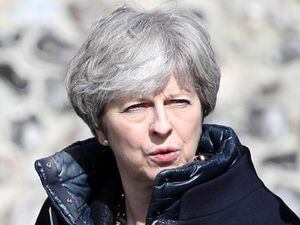
Tensions between the West and Russia have heightened as Moscow continued to plan its response to Theresa May’s expulsion of diplomats.
A tit-for-tat reaction is expected to the Prime Minister’s decision to kick out 23 diplomats who she said were undeclared intelligence officers.
And Moscow is also plotting a response to the United States after Donald Trump’s administration imposed sanctions on Russians allegedly involved in interfering with the 2016 US elections and cyber-attacks.
Asked whether Moscow would expel UK diplomats, Russia’s foreign minister Sergei Lavrov said: “Of course we will.”
The attack on former Russian spy Sergei Skripal and his daughter Yulia in Salisbury was highlighted by the US Treasury as one of the justifications for the tougher line against Moscow.
The US treasury department said the use of a military-grade nerve agent in the Salisbury incident “further demonstrates the reckless and irresponsible conduct of its (Russia’s) government”.
The sanctions prompted a swift threat of retaliation from the Russian government, which said a response was already being prepared.
Meanwhile the Kremlin continued to consider how to respond to Mrs May after the largest expulsion of diplomats since the Cold War was announced on Wednesday.
Speaking at an event in Moscow on Thursday night, Vladimir Putin said Russia was a “proud” nation “and will be in the future, too”.
Russian foreign minister Sergei Lavrov warned Moscow will expel British diplomats “soon” and suggested that the “provocation with Skripal” was an attempt to distract attention from the Brexit process.
Mr Putin’s spokesman Dmitry Peskov said the final decision on retaliatory measures “will, of course, be made by the Russian president”, adding: “There is no doubt that he will choose the variant that best of all corresponds to the interests of the Russian Federation.”
In a demonstration of the West’s unity, Mrs May and Mr Trump, along with Germany’s Angela Merkel and France’s Emmanuel Macron, issued a joint statement endorsing the Prime Minister’s conclusion that it was “highly likely” Russia was behind the attack on the Skripals.
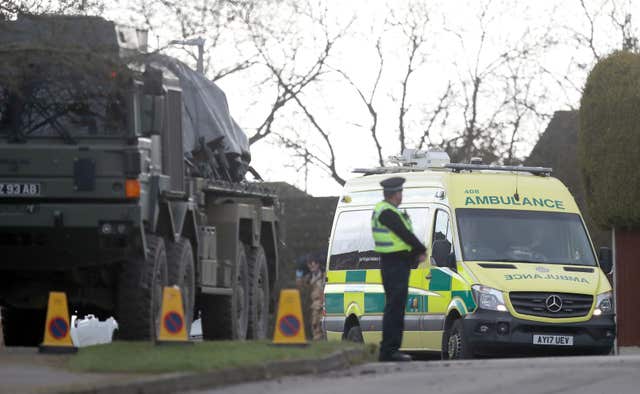
The newspaper said senior intelligence sources believe an item of clothing, cosmetics or a gift could have been laced with the Novichok toxin.
Labour leader Jeremy Corbyn, whose response to the attack has led to criticism from some on his backbenches, said “the evidence points towards Russia” being responsible – but the possibility of gangsters being behind the attack rather than the Kremlin could not be excluded.
He warned Mrs May not to “rush way ahead of the evidence” – highlighting the way international crises such as the Iraq War had seen “clear thinking” overwhelmed by “emotion and hasty judgments”.
Writing in the Guardian he warned against a “new Cold War” of “escalating arms spending, proxy conflicts across the globe and a McCarthyite intolerance of dissent”.
Confirming Labour’s support for Mrs May’s actions, Mr Corbyn said: “We agree with the Government’s action in relation to Russian diplomats.”
But he added: “Measures to tackle the oligarchs and their loot would have a far greater impact on Russia’s elite than limited tit-for-tat expulsions.”
Mr Corbyn said that Mrs May was right on Monday to identify two possibilities for the source of the nerve agent – either Russia authorised the attack or had lost control of the Novichok substance.
“If the latter, a connection to Russian mafia-like groups that have been allowed to gain a toehold in Britain cannot be excluded,” he said.
The Labour leader, who opposed the 2003 invasion of Iraq, added: “In my years in Parliament I have seen clear thinking in an international crisis overwhelmed by emotion and hasty judgments too many times.
“Flawed intelligence and dodgy dossiers led to the calamity of the Iraq invasion.”
But senior shadow cabinet member Sir Keir Starmer gave his unqualified support to Mrs May’s approach, telling BBC1’s Question Time: “I think it is very important that we support the action the Prime Minister laid out on Wednesday as a response to this unprovoked attack.
“This is not the first time, it needs to be called out – no ifs and no buts – and we need strong action as set out by the Prime Minister on Wednesday.”
Scotland Yard Assistant Commissioner Neil Basu, who heads up the national counter-terror police network which is leading the Salisbury investigation, appealed for anyone with information about the “despicable” and “appalling” attack to come forward.

